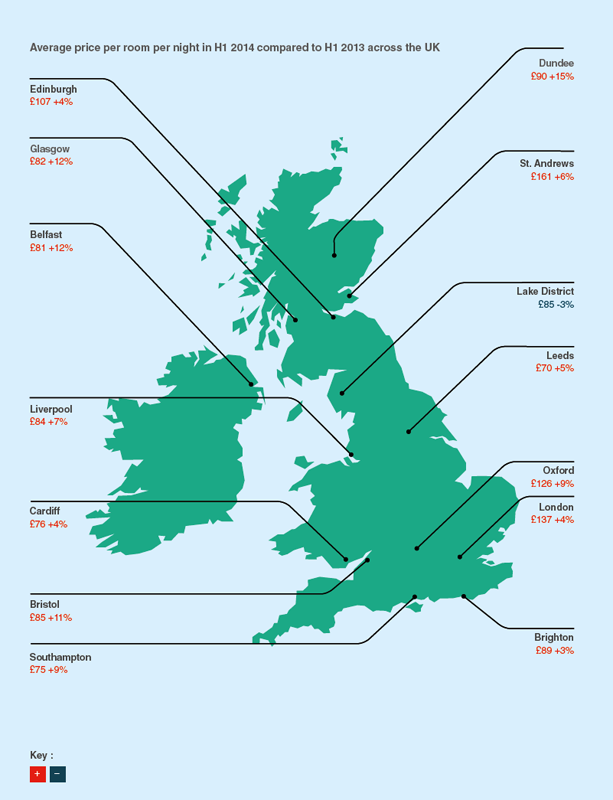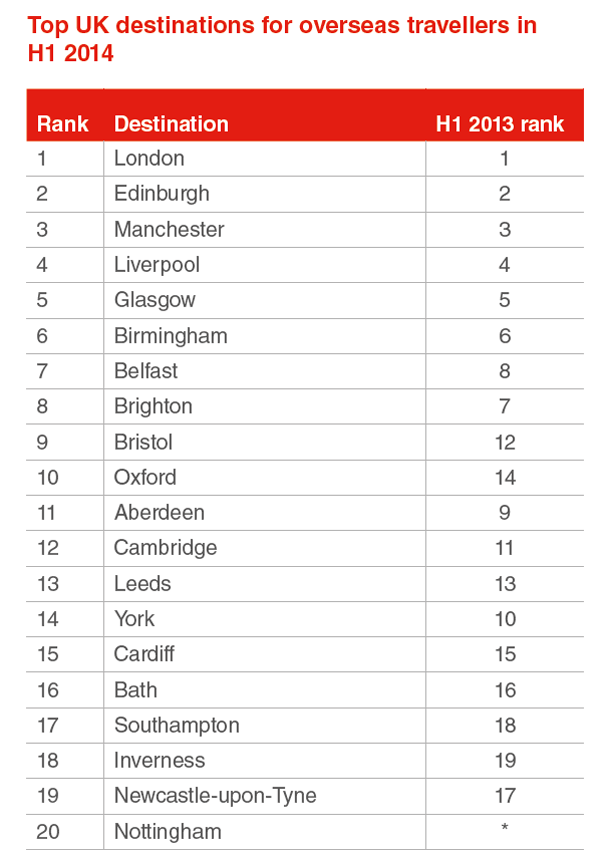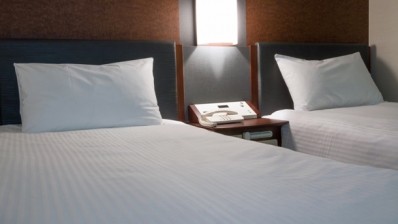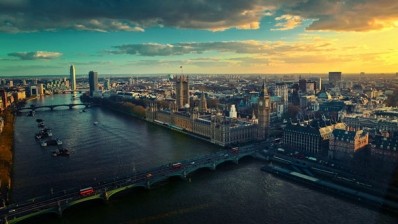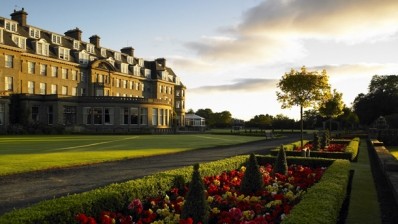UK hotel prices rise twice as fast as global average
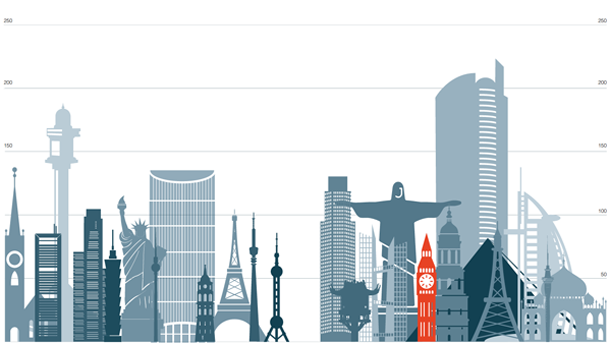
Hotel rooms in the country averaged £93 in H1 2014, compared to £86 in 2013, but were still far from the top prices paid in Monaco (£223, up 21 per cent), Oman (£189), Mauritius (£159) and Israel (£149).
In terms of cities, London topped the national charts at £127 a night on average (up 9 per cent), while Edinburgh went up 7 per cent to £102.
The global list was topped by Monte Carlo at £223, Muscat (Oman) at £197, Key West (Florida, US) at £192, New York at £171 and Cancun at £170.
UK performance
The UK saw a 7 per cent increase in number of inbound visitors in the first five months of 2014 (VisitBritain), coupled with economic growth of 0.8 per cent and a forecast of 3 per cent growth for 2014 as a whole.
This has led to the return of confidence in the hotel sector, and the country now has the most new hotel rooms under contract for construction in Europe at 41,831 – ten times that of France.
HPI data shows a 2 per cent increase in the average prices paid by all travellers in the UK, reaching £105 in the first half of 2014.
Spend increased the most in Scotland, with Dundee up 15 per cent to £90, Aberdeen climbing 14 per cent to £118 and Glasgow, which saw record performances around the Commonwealth Games, gaining 12 per cent to £82.
In England Cambridge saw average spend increase 13 per cent to £110, Bristol went up 11 per cent to £85 and Coventry rose 10 per cent to £55.
London received more than 3.6m overseas visits in the first three months of 2014, up 9 per cent on the same period in 2013, with a 4 per cent increase in average visitor spend to £137.
Top spenders in the UK
While all but four of the 36 nations included in the report spent more on hotels in the first half of 2014 than the previous year, it was visitors from the Middle East who topped the list in the UK at £169, despite a 6 per cent fall.
Mexico followed at £146 (up 4 per cent), with Brazil in third at £141. Russians came in fourth at £140 after a 13 per cent increase – the highest in the HPI. Singapore and the US shared the fifth place at £138.
Apart from the Middle East, the other notable drops came from Australian visitors, who spent 2 per cent less at £115, the Chinese down 1 per cent to £133 (still the 10th biggest spenders in the country) and Hong Kong down 1 per cent to £122.
The last 13 places in the top spenders table were filled by European countries, including the Czech Republic at £95, and Poland and Ireland at £99, despite increases over H1 2013.
When travelling at home, Britons spent an average of £85, reaching the 7th place on the top domestic spenders chart.
Star value
For the first time, the star rating available for £100 a night or less moved down to 2 stars in London. The capital joined a collection of US cities, as well as Venice and Zurich, on the list of cities where £100 won’t buy you more than a night in a 2-star hotel.
In New York and Geneva, this price would only cover a 1-star hotel, while in Pisa and Warsaw, it would give visitors access to a 5-star bedroom.
Tokyo topped the list of most expensive 5-star hotels at £340 for the first time, followed by Boston at £329 and New York at £324. London on £246 offered better value but Edinburgh was much more affordable on £158, less than half the sum paid in the Japanese capital.
Top UK destinations
Global performance
The 4 per cent growth in global hotel prices observed in the first half of the year marked the fifth year of consecutive growth.
Europe and the Middle East saw the sharpest index growth in six years, at 5 per cent. This was the second highest percentage increase equalling that of North America and just behind the Caribbean (6 per cent).
Johan Svanstrom, president of the Hotels.com brand, said: “There was a promising start to the year for the travel industry in general as demand for both international tourism and business travel remained strong. Consequently, we saw the highest rate of increase in the HPI since early 2012.
“Currency fluctuations played a major role in determining whether prices paid when travelling abroad either rose or fell for many travellers. UK travellers, in particular, benefited as Sterling either remained stable against already weaker currencies or gained ground against others.”
The global HPI stood at 115 at the end of the first half of 2014, 15 points higher than at its launch in 2004 and only four points off its all-time high of 119 (H1 2007).
